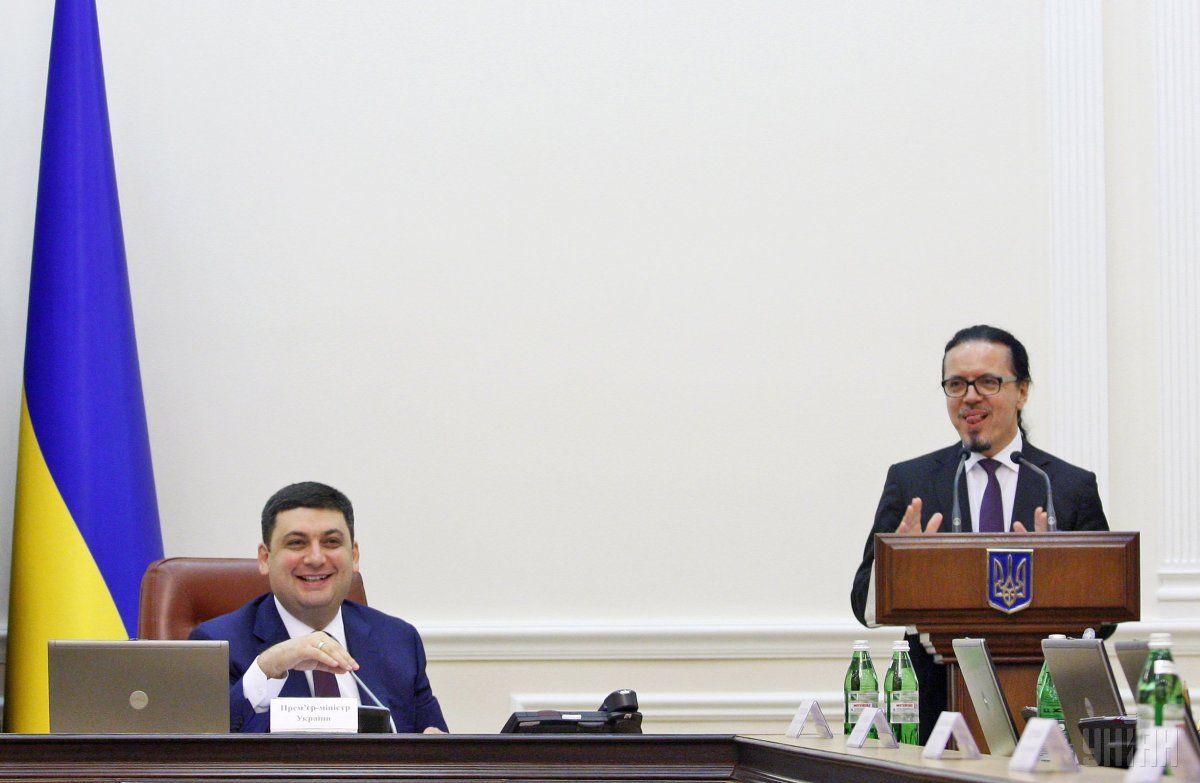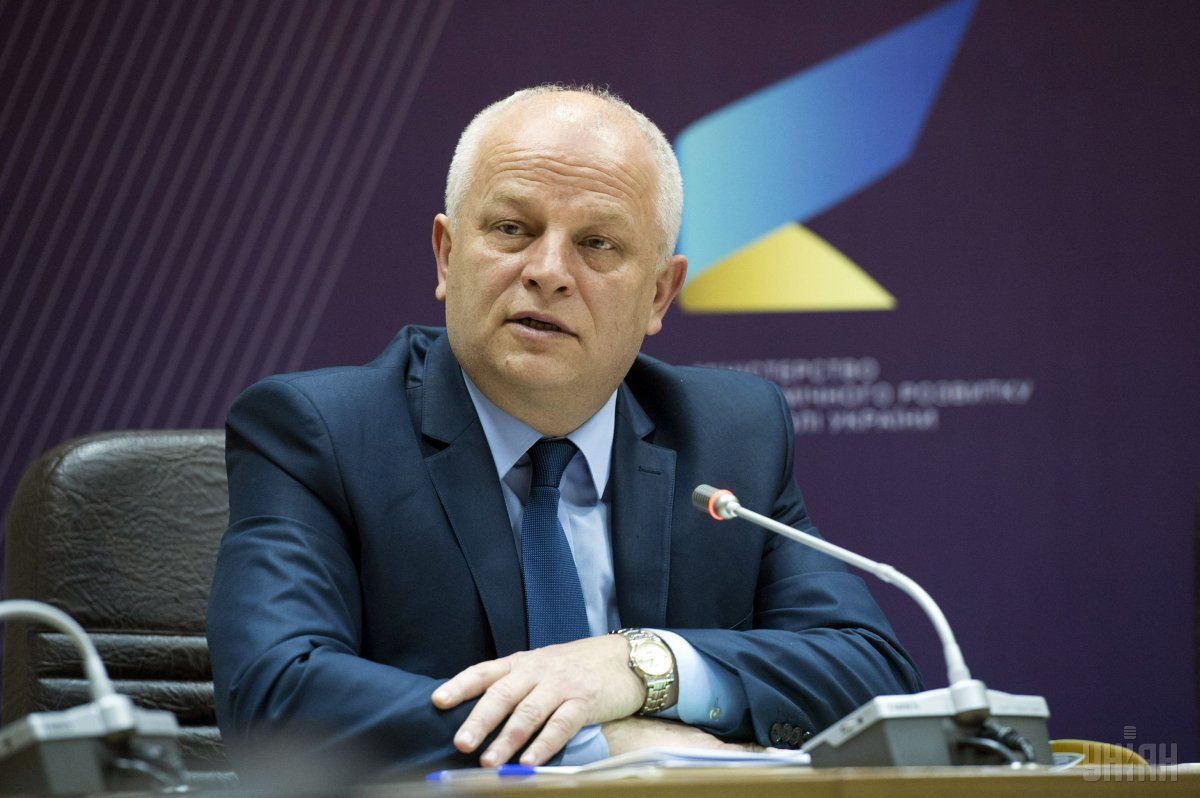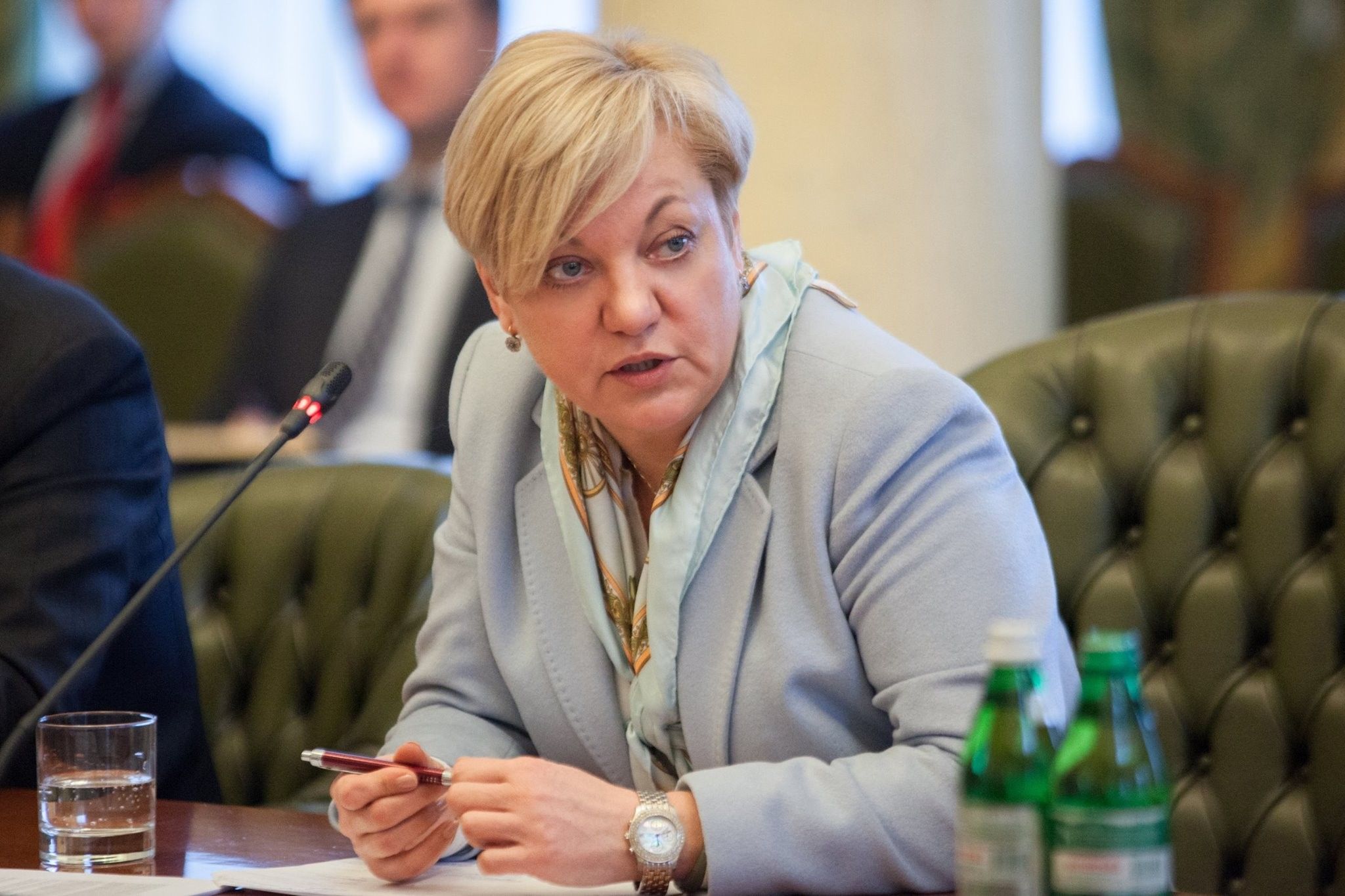
Week’s balance: 1st Cabinet meeting, rock star in Ukrzaliznytsia, and more air for hryvnia
The new government of Volodymyr Groysman held its first meeting, the IMF announced readiness to resume cooperation with Ukraine as soon as possible, and the National Bank reduced the discount rate – these are the main economic news of the past week.
After a two-month political crisis that was marked by the resignation of the government led by Arseniy Yatsenyuk, the new composition of the Cabinet headed by Petro Poroshenko’s longtime ally Volodymyr Groysman has started its work.
At a meeting of the National Reform Council on Tuesday, April 19, the prime minister received from the Presidential Administration the work plan for the first 100 days – a detailed weekly road map for concrete action.
According to Deputy Head of the Presidential Administration Dmytro Shymkiv, his office sees a priority for the Government in macro-financial stability issues, decentralization, deregulation, the fight against corruption, reform of the police and of the civil service.
Meanwhile, Groysman named his priority the reforms that will make it possible to improve the business environment in the country. At this, he stressed that the government is well aware of the existing problems – in the field of tax legislation, customs regulations and the work of various regulatory agencies.
"Before the end of this year, we will present a mid-term action plan, specific and clear one, which will let you predict the actions of the government and predict, how the situation will develop further. Our goal is to stabilize the situation, to provide macro-financial stability, to come to a point when Ukraine will be able to demonstrate economic growth. We also need to address issues of social protection and to ensure social justice," said the prime minister.
Identification of the main priorities of the new government last week flowed smoothly into the first meeting at which the Cabinet members considered appointments to the most important state-owned companies – Ukrzaliznytsya (Ukrainian Railways) and Ukrposhta (State Postal Service).
Earlier the Nomination Committee under the Ministry of Economic Development and Trade, at the time headed by Aivaras Abromavičius, decided on the candidates for the vacant positions of CEOs of state-run companies and recommended the government to appoint them.
In particular, the Committee proposed to appoint CEO of Ukrzaliznytsia the former head of the Polish Railways Wojciech Balczun, and CEO of Ukrposhta – the ex-employee of the U.S. office of one of the world's leading auditing companies KPMG Igor Smilyanskiy.
"Over the past 10 weeks we have been able to get the important things done – to select directors to the three state-owned enterprises – Ukrposhta , Ukrzaliznytsia, and an Electrotyazhmash plant. It’s up for the new government to approve these new managers to the post as soon as possible. This will be a litmus test of their orientation toward reform, as well as a chance for the new prime minister to show his will to remove the corrupt interests from the state-owned companies," said ex-Minister Abromavicius.
Given the history of corruption scandals involving the appointment of the heads of key state-owned companies, the expectations of successful appointment of the candidates selected in a transparent competition were low.
Nevertheless, the new composition of the Cabinet of Ministers unanimously supported the approval of Balczun and Smilyanskiy in their new positions, which was widely praised by both the expert community and author of the reform SOEs Abromavicius, who called on the government not to stop on this and to appoint the new head of the Kharkiv-based machine-building company Electrotyazhmash and lift the block on competitions in Ukrspirt and Centrenergo.

In addition, at its first meeting, the Government submitted to the Verkhovna Rada three draft laws on customs reform. The first one is about increasing the number of deputies in the central executive bodies, the second – on the amendments to the Customs Code regarding the organization of the territorial bodies of the State Fiscal Service, and the third – on minimization of the influence of tax administration on the state budget revenues.
"These are the three bills that were withdrawn from the Verkhovna Rada in connection with the change in the composition of the government. They relate to the State Fiscal Service reform. They are necessary for the resumption of cooperation with the IMF," said the newly appointed Finance Minister Oleksandr Danyluk, presenting the draft laws.
Danyluk said that cooperation with the IMF is one of the key priorities of the Ministry of Finance, also noting the importance of tax reform and reduction of the budget deficit.
Probably due to the fact that budget revenues actually consist of tax revenues, Prime Minister Groysman instructed law enforcement agencies to investigate into the information on Danylyuk’s alleged offshore companies, not listed in his tax report. At the same time, Danyluk, who previously denied any involvement in business activity since 2010, has added information on two Cyprus-registered companies and another one registered in the Cayman Islands, to his tax report.
"I am making changes to my declaration, and I want to apologize to the public – I should have properly declared all that data from ‘on the first try.’ I’ve not been engaged in business since moving to Ukraine in 2010, and therefore, I did not have and do not have a conflict of interest while on the civil service. But, according to information received, I still remained formally the director in three companies – two companies in Cyprus and one in the Cayman Islands. They were part of a group of companies, which I was one of the directors – i.e. a hired manager – acting in the interests of investors. I have given instructions to withdraw me from the leading positions, and my former partners, together with lawyers are completing the relevant procedures," said Danyluk.
A series of offshore scandals involving the Ukrainian officials was crowned with the promise of constructive action – President Petro Poroshenko, who is also the owner of the offshore companies, pledged to submit to the Verkhovna Rada by June legislative initiatives on deoffshorization, within the working group with the participation of international experts.
Return of the Ukrainian capital to the Ukrainian tax jurisdiction, which should be a logical result of deoffshorization, can be a great support to both macro-financial stability and the resumption of economic development. And this support, in all likelihood, this could be far more important than the IMF loans.
Loan assistance: The IMF stands ready to cooperate
While the Ukrainian political elite remained in a two-month crisis due to the vicissitudes of the appointment of the new government, the main creditor of Ukraine - The International Monetary Fund – has suspended cooperation with the official Kyiv. The main condition for the resumption of cooperation is to achieve political stability. The appointment of the new government and the formation of the coalition de facto put an end to the political crisis, and the news from the IMF came swiftly.
National Bank Governor Valeryia Gontareva said that the IMF mission is ready to return to Ukraine in the near future.
"I have met in Washington with Christine Lagarde (Managing Director of the IMF), the World Bank. I can tell you that the IMF mission is set to come to Ukraine as soon as possible," she said.
Danyluk said Ukraine was ready to accept the mission of the main creditor, and First Deputy Prime Minister - Minister of Economic Development and Trade Stepan Kubiv stressed that the next $1.7 billion tranche may come before the end of June.

"There was a meeting of the working group, which was attended by the [representatives of] the Ministry of Finance and Ministry of Economy, and communication structure [with the IMF] was worked through. There is a definite timeline for the fulfillment of instructions, including drafting laws and adopting the bills in the Verkhovna Rada. Apparently, after that, there will be a Skype conference with the IMF, we will get the additional principles for forming the position of the Finance Ministry, the Economy Ministry, and other ministries. Then we will put it all on paper and inform you. It will take some time, but we want to do this in the near future. This should be done by May 1. The prime minister clearly set a task to find a solution for receiving the tranche before the end of June," Stepan Kubiv said.
According to Dmytro Shymkiv, before the end of May, Ukraine must complete all the legislative work necessary to obtain international financial aid.
"With regard to cooperation with the IMF, we need to adopt 19 bills. Their adoption paves the way for the next tranche of the Fund in the amount of $1.7 billion, as well as additional U.S. Government loan guarantees worth $1 billion. As for cooperation with the EU, the third EUR 105 million tranche of macro-financial assistance is at stake. We need to pass five bills to get it," he said.
Besides, Shymkiv said that as Ukraine expects to receive a total of $5.5 billion from the IMF in 2016, it is necessary to draft and adopt 129 laws.
According to the official, the Ukrainian side, in turn, would like to renegotiate the terms of the Extended Fund Facility program of the IMF, but the Fund is not ready to change them.
In the end, the Prime Minister Groysman admitted that there is no alternative to the reforms envisaged in the existing lending program.
"We have an agreement with the IMF, which has been signed. It involves a number of tasks to be executed. Government will fulfill diligently these tasks and commitments," said the prime minister.
Given a large amount of debt to external creditors, repayment of which, according to the Ministry of Finance, will require $18 billion in the years 2018-2020, there is no alternative way but to continue the programs of cooperation with international donors as well as borrowing in foreign markets.
"Judging by the experience of other countries, repayment of such amount of debt is possible by raising funds in foreign borrowing markets," Danyluk said.
Thus, the debt burden and the need for reform are key drivers for boosting the activity of the Ukrainian executive and legislative authorities, however, the interaction between the Cabinet and the Verkhovna Rada does not seem to show significant progress.
"It will be much more difficult for the new government to get the support of Parliament than the previous one," says Shymkiv.
NBU loosens monetary grip
Despite the political turbulence, macro-financial situation in Ukraine has recently shown signs of stability, and the rate of national currency continues to strengthen. Against this positive background, the formation of a new government, paving the way for further cooperation with the IMF, has enabled the National Bank to soften its monetary policy.
National Bank Board decided to reduce from April 22 the discount rate by 3 percentage points – from 22% per annum to 19%, which means a reduction in price of borrowed funds in the Ukrainian economy.
According to the National Bank, the decision on liberalization of monetary policy was made in connection with the continuing trend of decline in consumer inflation, which in the first quarter of this year slowed to 1.6%, which is even lower than the regulator's forecast.

"The risks for higher inflation in comparison with the targets, straining the easing of monetary policy in the first quarter have weakened significantly since the previous meeting of the Board of the National Bank on monetary issues," Gontareva said at a press briefing.
According to chief economist at Alfa-Bank (Ukraine) Oleksiy Blinov, the National Bank's decision will eventually lead to a decrease in interest rates on deposits and loans, but it should not trigger the depreciation of the hryvnia.
"In terms of the exchange rate, the reduction of the interest rate is not the cause but the consequence. After the apparent slowdown in inflation, the National Bank of Ukraine could reduce the key rate by 1-2 percentage points already in the previous meeting on March 3, but due to the high volatility of the currency market at the time, it decided to wait for another month and a half," he said.
In addition to reducing the rate, the NBU also announced the liberalization of the foreign exchange market after the resumption of cooperation with the IMF.
"The Board of the National Bank of Ukraine believes that the current economic conditions and the balance of risks allow further liberalization of the foreign exchange market after the resumption of cooperation with the IMF," said Valeriya Gontareva, the NBU Governor.
In particular, forex liberalization will affect the abolition of the ban on repatriation of dividends on the results of evaluation of the volume of dividends to be paid.
"After receiving the information about the planned volume of dividend payment, the National Bank will determine the schedule for such payments. At the same time, the bank customers will only be able to take advantage of this opportunity only after completion of the second review of the EFF program with the International Monetary Fund," Gontareva said.
In addition, the regulator has kept the forecast for economic growth this year at 1.1%, and inflation – at 12%.
The statistics showing a 4.8% growth of industrial output in March is also quite promising, as it continued a trend that began in February, when the industrial production increased by 7.6% compared to the same period last year.
The highest growth – by 1.6 times – was recorded in manufacture of computer equipment, electronics, and optical products; production of coke and refined petroleum products rose by 26.6%, coal and lignite mining – by 25.9%, and metallurgy – by 19.1%.
Thus, economic statistics, in contrast to the political situation, indicates the beginning of a positive trend, which is the result of reforms undertaken by the previous government. The new Cabinet has enough levers to support economic growth, it just needs to use them properly.
Maksym Shevchenko (UNIAN)

